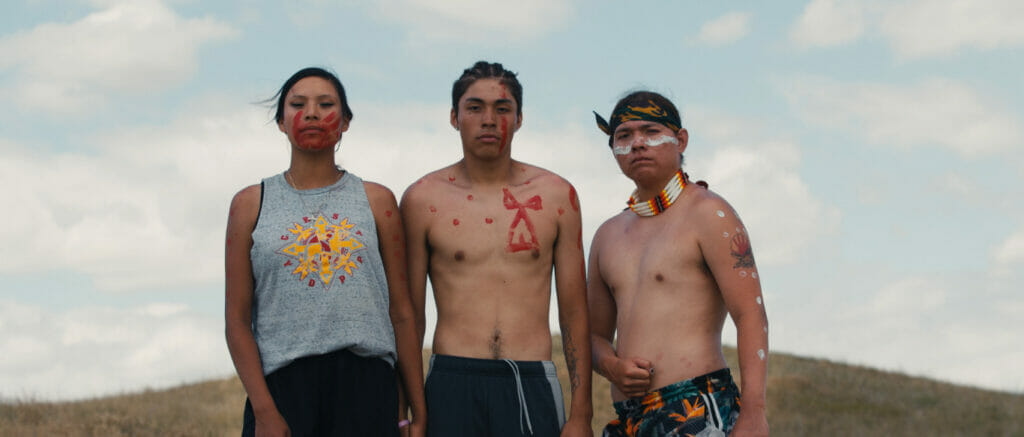Read also:
How to Watch FX Live Without CableHow To Watch AMC Without CableHow to Watch ABC Without CableHow to Watch Paramount Network Without CableJesse Short Bull and Laura Tomaselli craft a damning case against settler colonialism and its pernicious, inescapable role in American history.
The difference between indigeneity and settler colonialism grows from a relationship with the land. The colonialist sees themselves as its manager, pledged to “improving” and extracting as many resources as possible from their private property to further their capital. As Jesse Short Bull and Laura Tomaselli poignantly articulate in their new documentary, Indigenous North Americans are of, from, and with the land. They are its caretakers and beneficiaries. Lakota Nation vs. The United States makes a passionate case that the US Government should return the Black Hills of South Dakota to the Lakota and their future generations.
The documentary is structured along a three-chapter timeline of Lakota history, beginning with the extermination during the classical colonial period, through a period of assimilationist policies in the modern era, and into our time of contemporary reparation. In each chapter, Tomaselli and Short Bull, aided by their ardent group of elders and experts, read out from the X’s, which mark the historical violence and broken treaties that reverberate through families and territories. Their goal is to prove that restoring The Black Hills to the Lakota people is not only just, but necessary.
The evidence Lakota Nation establishes against settler colonialism and its proponents are damning. From cultural and physical invasion to forced removal, rape, and dispossession, the white supremacist modus operandi has remained largely unchanged through the centuries. History repeats at sacred sites like Wounded Knee, which take on multiple layers of historical significance. Meanwhile, the descendants of ancient colonial actors continue their profit-making.

UNITED STATES. Courtesy of IFC Films. An IFC Films release.
Yet these are political points you can find by browsing Twitter for more than five seconds. What’s most compelling about Short Bull and Tomaselli’s case is their arguments for why the Lakota have always been the land’s rightful stewards. While settlers are bound by history and come and go like ants, the vantage of the Lakota is eternal. Their oral histories go back into prehistory, and the land has always been there. The myths, rituals, and practices that have grown from The Black Hills are what birthed The Lakotas and their neighboring tribes.
Their defacement represents an intended effacement of a people and culture. Though The Six Grandfathers are masked by four colonial faces, there’s a resounding conviction in the presented documents and testimonies of the Land Back movement that The Black Hills of South Dakota, along with territories in North Dakota, Nebraska, Wyoming, and Montana, will always be the face of Lakota identity.
But while Tomaselli and Short Bull make it known that this appeal by the Land Back movement is for the benefit of The Lakotas, it’s really about the enrichment of everyone. The struggle remains and has always been a collaborative one. Most major Native triumphs in history occur when different groups band together. The movement for reparations is the same. With two directors and writer Layli Long Soldier, even this documentary is a collaborative effort.
What ties the varying ideas behind Lakota Nation vs. The United States together is the movement’s connections with other political causes — environmental justice, antiracism, and queer liberation. By returning the land to Native ownership, we shift material power in ways that will protect the environment and communities. The Lakota hope and determination are for us all. In an interview, tribe member Henry Red Cloud assures us that “the future already exists” — the past lives with us, and the future walks beside us. Such a concurrent sense of time contradicts capitalism’s logic of increments, units, and periods. Yet that’s what makes the change it imagines possible. Like their aptly named production company (Unceded Films), Short Bull and Tomaselli’s film reveals a way of seeing the world which remains unceded.
Lakota Nation vs. United States comes to NY theaters July 14th, before expanding to Los Angeles and additional theaters July 21st.